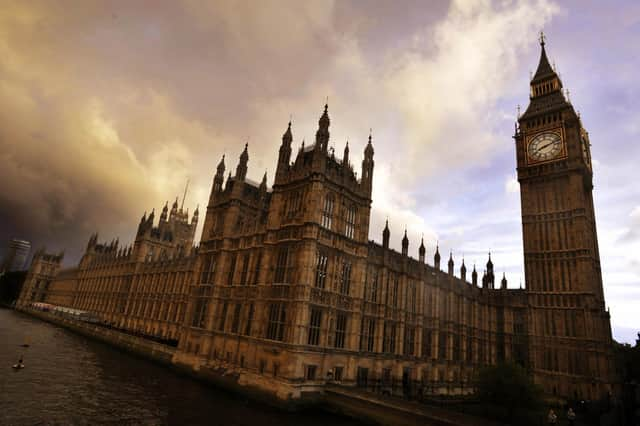How the Government can give children the start in life they need - Baroness Armstrong


The House of Lords Public Services Committee, which I chair, has just published a new report: Children in crisis: the role of public services in overcoming child vulnerability. We found that today in England more than one million children are growing up with reduced life chances.
The most affected communities are our regions which are already the most deprived, where too many children go into care, have poor health and employment outcomes, get excluded from school or end up in prison.
Advertisement
Hide AdAdvertisement
Hide AdDuring the course of our inquiry, we heard from parents and children, social workers and workers from the voluntary sector, researchers and academics.
We heard from young adults who had grown up in homes affected by domestic violence and alcohol abuse, and who fell through the gaps unnoticed, sometimes ending up homeless; and we heard from those working to help them, often frustrated at the lack of resources and coordination on the ground.
The Covid-19 pandemic made matters worse, but those problems are deeply entrenched. Since 2010, local authorities’ early intervention programmes such as Sure Start, children centres or family support have suffered a £1.7billion yearly reduction – that is, they have been slashed almost by half.
This reduction was not felt equally across the country. Leeds saw spending on those programmes reduced by 59 per cent, Bradford by 64 per cent.
Advertisement
Hide AdAdvertisement
Hide AdOverall, up to 45 per cent of cuts happened in areas in England that already had the highest levels of child poverty.
By contrast, Surrey, which has low levels of deprivation, saw funding drop by only 10 per cent.
At the same time, more money was spent on later interventions like youth justice or safeguarding, which are often costlier and higher-intensity, and yet saw a 34 per cent increase in funding to £7.6billion.
This shows that instead of supporting families early on, public services are stepping in at crisis point – even though early intervention, for example helping parents to care for their children when first experiencing difficulty, results in better outcomes for children.
Advertisement
Hide AdAdvertisement
Hide AdInvesting small amounts per child in services that can intervene early could not only enable problems to be solved within the family before the state has to step in, but also prevent spiralling costs for children’s care.
Jade, a 23-year old from Doncaster and a mother of two, told us how attending her local Family Hub – which provides access for parents and children to services such as parenting advice or relationship counselling – helped her meet the needs of her family.
“I was having problems when my son’s dad was being abusive to me and smoking skunk (a strong cannabis strain) in front of the kids,” Jade told us. “If it wasn’t for the Family Hub, I wouldn’t have been able to get out of this tough situation.”
Family Hub staff directed Jade to sessions where she learnt how to plan healthy meals for her children, and how to read and play as a family. This type of early-stage help is the right approach. But sadly Jade’s story remains the exception rather than the norm.
Advertisement
Hide AdAdvertisement
Hide AdIn the Government’s October Spending Review, £492million in investment was pledged for early intervention services over the next three years, which came with a commitment to a £27 million start-up investment per year for 75 local authorities in England to set up new trial Family Hubs. But while this is a welcome announcement, it will not make up for the £1.7 billion annual loss experienced by local authorities in the last decade.
This also falls short of the vision laid out by the Government itself in its Early Years Review, which sets out that all families should be contacted by a local Family Hub as soon as pregnancy is confirmed.
We are calling on the Government, therefore, to publish a national strategy on child vulnerability supported by substantial, long-term investment in local early intervention services, with a national roll-out of Family Hubs at its heart.
This is the level of ambition that we need to ensure that more families, like Jade, have access to support when they need it – no matter where they are in the country.
Advertisement
Hide AdAdvertisement
Hide AdPeople should be at the heart of the Government’s levelling-up agenda.
Achieving equal opportunities for all must start with allowing vulnerable children in our most disadvantaged communities the chance for a better life.
Now is the time for the Government to act, to give every child the opportunity to live a productive, fulfilling and rewarding life.
Baroness Armstrong of Hill Top is a Labour Life peer who has sat under this title in the Lords since 2010.
